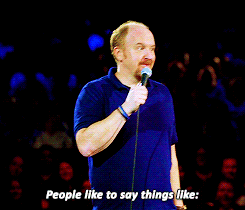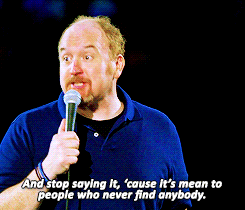It was with no small pleasure that I listened last week to Sarah Perry being interviewed on the Review the Future podcast. The occasion was the publication (at long last) of her book Every Cradle is a Grave, a review of the ethics of birth and suicide, by someone who thinks that birth is a real problem and is pro-choice on suicide — thus a kindred soul. The podcast being what it is, it took up issues generally associated with transhumanism and the right to alter one’s consciousness. It’s a good listen — by all means go and download it. Also, please go and show Sarah the love she deserves and buy her book. I’ll probably be commenting on it in a number of future posts.
It might seem odd for pessimistic me to say this, but I’m broadly sympathetic to transhumanism, precisely because I have such a sense that life is filled with suffering. I don’t think failure in attempts to alleviate suffering is inevitable, and I like radical proposals. Build a virtual reality in which we could have amazing experiences for the rest of our lives? Sign me up! Come up with pharmacological interventions that will make everyone vastly happier and cut off sentient suffering at its neural roots — the project that philosopher David Pearce has been promoting? Excellent idea. And curiously, and like Sarah and the hosts of Review the Future, I’m rather sympathetic to proposals for life extension technology. Such sympathies might seem highly paradoxical in someone who who thinks, as I do, that life is on balance suffering. I mean, if life is so bad, why on earth would anyone want more of it than that with which nature has seen fit to burden us?
[Interstitial comment I can’t resist: the currency of transhumanism, and the fact that there are so many very smart people willing to contemplate very radical changes to themselves as a means of escaping their current existence, strikes me as highly compelling evidence in favor of the proposition that human life as it currently exists is a state of much misery and deprivation, even if the highly-smart people who espouse transhumanism wouldn’t be caught dead putting that framing on the matter.]
Part of the reason is just an attempt at consistency. If you think — and I do — that in a decent society people ought to have the right of making their lives shorter than they otherwise would have been, then it’s hard to justify breaking the moral symmetry and insisting that people do not have the right to make their lives longer than they otherwise would have been. But deeper than that there is a reflection that one important source of life’s suffering is our mortality, or to put matters more precisely, the way in which our mortality comes about.
After getting to early adulthood you will spend your life breaking down and decaying. You get slower, you get weaker, you get less flexible. Your memory gets fuzzier and weaker. You learn new things and acquire new skills ever more slowly. Your attractiveness diminishes. You heal more slowly and bounce back from illnesses less quickly. You accumulate both major and minor medical conditions which reduce your quality of life and impair your productivity.
An implication of this ugly set of facts is that you’d better be pretty damn lucky in how the first decade of your adult life goes, or else you are screwed. Maybe a little screwed or maybe a lot screwed. Why? Well, let’s put it this way. There are some at-least relatively fulfilling ways of spending your life and other that basically are going to suck. Fulfilling ways for many people: being a teacher, a performer, an artist, a philosopher, a scientist. And the not fulfilling, which is to say, most of the actual jobs that people do all day. As a young adult, you might want to try your hand at something fulfilling: after all, you only live once. It’s going to be a lot of work for you to acquire the relevant skills and relationships, but maybe just maybe, things will work out. Unfortunately, since the thing that you happen to find fulfilling is likely to be something that lots of other people find fulfilling, there’s going to be a lot of competition for what few slots the world has for paying work doing the fulfilling thing. And this means that no matter how talented you are or how hard you work, the most likely outcome of aiming for fulfilling work will not be fulfillment but failure.
And what then? Well, then you’re likely to find yourself being about thirty or so finally admitting to yourself that your attempt at fulfillment was a failure, and now you need to just settle for having a paycheck. But now there’s a problem, which is that while you were off pursuing your dreams, other people who were twentysomething at the same time that you were twentysomething have been busy building up the skills and the relationships to do the not-fulfilling jobs. So now they’re ahead of you in the queue of careers and you are busy competing to get in on the ground floor of some job where you are competing against a lot of people who are a decade or so younger than you are. Due to the ugly facts about aging, you are going to be, other things being equal, a step slower and a thought duller than they are. So basically now you’re life is going to suck even more than it would have had you just gone out for the crappy work in the first place.
[The reflections of the two paragraphs above are intensely personal for me, because they’re autobiographical. I spent my twenties working at becoming something that mattered to me, with the result that I found myself sitting at home on my thirtieth birthday, lonely and alone, with a few hundred dollars in a checking account and no realistic career prospects. That experience nearly broke me. I spent my thirties playing professional catch-up in a very different job against people who were younger and faster than I was. That was painful, to put it mildly.]
Of course, you might also have just yourself gone out for the crappy work in the first place. How many people sadly spend lives of drudgery, not even trying to become something they care about, out of fear of what will happen if they do. What a life to look forward to!
The ugly facts of getting older have a longer-term consequence as well, which is that if you live enough — a result which the relentless advance of medical science has condemned most of us to — then you’re eventually going to find yourself in an enfeebled condition where you can do very little work at all — and this even if you manage to be spared the ravages of old age disease and dementias. In practical terms this means you’d better spend much of your working life saving up money for that extended period of pre-death known as retirement or be prepared for an old age even more miserable than it might otherwise be. (In a humane society sufficient resources would be put aside to prevent impoverishment in old age from happening. To some extent this has been done, but we also now live in a world, in North America and Europe anyway, where the better people who rule us have decided, under the banners of Austerity and Shared Sacrifice, that a measure of comfort and dignity in old age is a nice thing we are no longer to be allowed to have. Since the ruling betters have more power than the rest of us, they’re likely to get what they want. Too bad.) The fact that you are likely to someday face old age means that we must live in fear of economic failure before we are old. Naturally this is a fear that others exploit. Your boss can get away with being shitty to you because he knows and you know that you really can’t afford to be fired, for fear of the future.
So aging poisons our lives, long before we even get old. If we could remain mentally and physically twenty for as long as we felt life was not a burden, life would not be so poisoned. Were we to fail in what we wanted, we could just pick up and do something else with no penalty of being older. Perhaps we could try again in the future under more favorable conditions.
Would we get bored eventually? Come to feel like Emilia Marty in The Makropoulos Case that life has nothing left for us? Perhaps. Since no one has ever lived to be as old as the fictional Emilia, and since we therefore have no real first-hand reports about what it like to have lived to be 337, I think that it would be unwise to speculate about what a centuries-long or longer life would be like. But let’s admit the possibility. Well, that’s were being pro-choice on suicide would be a blessing. Long life would not be a curse if we could freely exit it.




